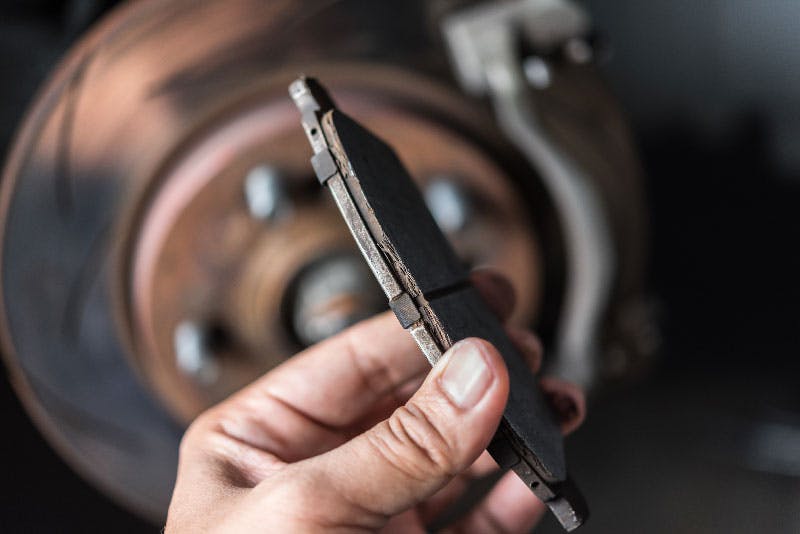As a car owner, paying attention to the sounds and signals your vehicle is giving you is essential.
The brakes are one of the most critical parts of your car's safety system; if you neglect them, they can lead to costly repairs and even accidents.
Key Takeaway:
|
When Should You Change Brake Pads And Rotors?
On average, brake pads should be replaced every 25,000 to 65,000 miles, while rotors typically should be changed anywhere from 30,000 to 70,000 miles.
However, the exact number can differ depending on driving conditions and styles.
The good news is, you'll likely experience minor symptoms when your brake pads are getting towards their end of life, making diagnosis and repairs easy.
What are the signs that you need to change your Brake Pads and Rotors?
1. Squeaking or Squealing Coming From Brakes
If your brake pads are near the end of their useful life, the first symptom you'll begin to notice is a squeaking or squealing noise coming from the brakes. Squealing brake pads are typically caused by excessively worn-down pads.
Once you've worn down your pads enough, you'll start to experience a grinding noise, at which time you'll also begin to damage your rotors, making the repair cost even more expensive.
2. Grinding Sound When Braking
As we stated above, if you're experiencing a grinding noise while you're applying pressure to the brake pedal, your brake pads need to be replaced ASAP. Some brake pads have built-in metal wear indicators, which are designed to make a loud noise and alert you that it's time to replace the pads.
If you leave the brake pads to continue grinding, you're opening yourself up to a lot more damage and higher repair costs.
3. Vibration When Braking
If you feel your car shaking when you press the brake pedal, it means that there's something wrong with the brakes. It's probably because the rotors that help stop the car are not smooth anymore, causing the brakes to work unevenly.
You should take your car to a professional to fix it.
4. Taking Longer To Stop
Another major sign that your brakes need to be checked out is loss of performance when applying the brakes. If you're experiencing less than ideal-stoppage times while applying your brakes, it may mean your brake pads are worn down completely or that your brake fluid is low (oftentimes due to a leak).
For a true understanding of what's going on with your brakes, you'll want to get to a brake mechanic as soon as possible to ensure you keep all braking abilities.
5. Brake Pad Indicator Light Comes On
Most modern vehicles come with brake warning lights that appear on your dash. One is your Antilock Braking System (ABS) light, and the other is your brake system warning light.
Your brake light won't always come on when there is an issue — it's also the light that appears on your dash when your parking brake is engaged.
But if you're seeing a brake warning light and your parking brake isn't engaged, it's time to have a brake expert look at your system to diagnose your issues.
6. Your Brake Pads Appear To Be Thin
One way to easily check on your brake pads is to inspect them visually for wear. To do this, look between the spokes of your wheels and locate your brake pad.
If it appears to be less than a ¼ inch or 6.4 mm thick, and there's brake dust buildup, you're probably due for a set of new brake pads.
Experiencing Brake Issues?
If you're experiencing any of the above symptoms, let our expert brake techs provide a diagnosis.
We provide top-rated, affordable brake repair services at your work or home.
Receive a free brake repair estimate, or call (855) 800-5629 to discuss what you're experiencing!

